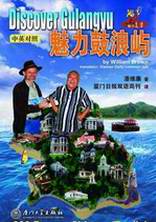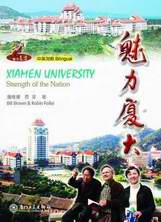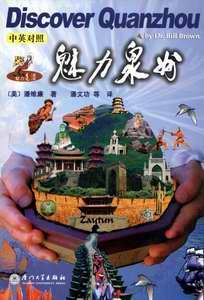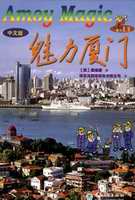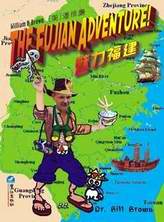![]() Click
to
Access
Click
to
Access
OUTSIDE China
![]() Click
to Access
Click
to Access
INSIDE
China ![]()
TRAVEL LINKS
![]() Xiamen
Xiamen
![]() Gulangyu
Gulangyu
![]() Jimei
Jimei
![]() Tong'an
Tong'an
![]() Jinmen
Jinmen
![]() Zhangzhou
Zhangzhou
![]() Quanzhou
Quanzhou
![]() Wuyi
Wuyi
![]() #1Fujian
Sites!
#1Fujian
Sites!
![]() Fujian
Foto Album
Fujian
Foto Album
![]() Books
on Fujian
Books
on Fujian
![]() Readers'Letters
Readers'Letters
![]() Ningde
Ningde
![]() Zhouning
Zhouning
![]() Longyan
Longyan
![]() Sanming
Sanming
![]() Putian
Putian
![]() Bridges
Bridges
![]() Travel
Info,
Travel
Info,
![]() Hakka
Roundhouses
Hakka
Roundhouses
![]() Travel
Agents
Travel
Agents
MISC. LINKS
![]() Amoy
People!
Amoy
People! ![]()
![]() Darwin
Driving
Darwin
Driving ![]()
![]() Amoy
Tigers
Amoy
Tigers
![]() Chinese
Inventions
Chinese
Inventions
![]() Tibet
in 80 Days
Tibet
in 80 Days![]()
![]() Amoy
Vampires!
Amoy
Vampires!
![]() Dethroned!
Dethroned!
![]()
![]() Misc.Writings
Misc.Writings
![]() Latest
News
Latest
News
![]() Lord
of Opium
Lord
of Opium
![]() Back
to Main Page
Back
to Main Page
![]() Order
Books
Order
Books![]() Xiamenguide
Forum
Xiamenguide
Forum 
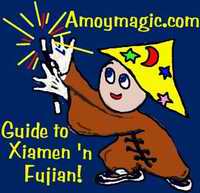
Tong'an
Links ![]() Tong'an
Main Page
Tong'an
Main Page![]() Su
Song--Tong'an's Renaissance Man
Su
Song--Tong'an's Renaissance Man ![]() Tong'an
Museum
Tong'an
Museum ![]() Matang
Village--Xiamen's #1 Village
Matang
Village--Xiamen's #1 Village ![]() Philosopher
Zhuxi
Philosopher
Zhuxi
![]() Fujian
Firewalkers
Fujian
Firewalkers ![]() Confucius
& Confusionism
Confucius
& Confusionism
![]() Parks
& Attractions
Parks
& Attractions
![]() Wuyi
Mountain (Zhuxi spent years there)
Wuyi
Mountain (Zhuxi spent years there)
Zhuxi (1130¨C1200), whose reinterpretation of Confucius (neo-Confucianism) transformed most of S.E. Asia, was born October 18, 1130 in Fujian Province's Youxi and educated by his father, a local official. Zhuxi probably had more influence on China than anyone but Confucius because his "Four Books" (the teachings of Confucius and his disciple Mencius, with Zhuxi's commentaries) was China's primary text for primary education and civil service exams for centuries.
Zhuxi passed the highest civil service exam at age 18 when the average age was 35--and some continued to retake the exams into their 70s or 80s before succeeding or passing on without passing the test. Over the centuries Confucianism had lost ground to Daoism and Buddhism, so the Neo-Confucians adapted Confucian principles to tackle the fundamental nature of reality. Zhuxi visited Li Tong, one of the foremost Neo_Confucians, and when he was 30 he several months studying under Li Tong, at which time he turned to Confucianism.
Zhuxi's first official position was as registrar in the Fujian town of Tong'an. He reformed local tax and criminal systems, improved the local school, and created a formal code of conduct and ritual. Tong'an was the last official appointment that Zhu Xi accepted until 1179 because he did not care for politicking, preferring the life of a teacher and scholar. But even as a scholar he continued to present memorials to the emperor to make his views known. It was just as well that he left politics. His outspoken and uncompromising criticism destroyed any chance he'd have had of rapid advancemen. For example, he repeatedly emphasized that if the Emperor wanted moral transformation of China, he needed to first transform his own morals. Zhu Xi was eventually barred from political activity, and when he died April 23, 1200, he was still in political disgrace, though his reputation was restored soon after his death (when, of course, he was no longer a threat).
In 1241, Zhu Xi was
posthumously honored by a tablet placed in the Confucian
Temple. The Korean Yi Dynasty (1392¨C1910) chose Zhu Xi's Neo-Confucianism
as the state ideology, and the Japanese also adhered to his teachings
during the Tokugawa period (1603¨C1867).
For more info about Zhu Xi, visit Wuyi Mountain,
where he spent many years.
![]() Tong'an
Main Page
Tong'an
Main Page![]() Su
Song--Tong'an's Renaissance Man
Su
Song--Tong'an's Renaissance Man ![]() Tong'an
Museum
Tong'an
Museum ![]() Matang
Village--Xiamen's #1 Village
Matang
Village--Xiamen's #1 Village ![]() Philosopher
Zhuxi
Philosopher
Zhuxi
![]() Fujian
Firewalkers
Fujian
Firewalkers ![]() Confucius
& Confusionism
Confucius
& Confusionism
![]() Parks
& Attractions
Parks
& Attractions
![]() Wuyi
Mountain (Zhuxi spent years there)
Wuyi
Mountain (Zhuxi spent years there)
![]() Favorite
Fujian Sites
Favorite
Fujian Sites ![]() Fujian
Foto Album
Fujian
Foto Album ![]() Xiamen
Xiamen
![]() Gulangyu
Gulangyu
![]() Fujian
Guides
Fujian
Guides ![]() Quanzhou
Quanzhou
![]() Zhangzhou
Zhangzhou
![]() Longyan
Longyan
![]() Wuyi
Mtn
Wuyi
Mtn ![]() Ningde
Ningde
![]() Putian
Putian
![]() Sanming
Sanming
![]() Zhouning
Zhouning
![]() Taimu
Mtn.
Taimu
Mtn. ![]() Roundhouses
Roundhouses
![]() Bridges
Bridges
![]() Jiangxi
Jiangxi
![]() Guilin
Guilin
![]() Order
Books
Order
Books![]() Readers'
Letters New: Amoy
Vampires! Google
Search
Readers'
Letters New: Amoy
Vampires! Google
Search
Last Updated: May 2007
![]()
DAILY
LINKS
![]() FAQs
Questions?
FAQs
Questions?
![]() Real
Estate
Real
Estate
![]() Shopping
Shopping
![]() Maps
Maps
![]() Bookstores
Bookstores
![]() Trains
Trains
![]() Busses
Busses
![]() Car
Rental
Car
Rental
![]() Hotels
Hotels
![]() News
(CT)
News
(CT)
![]() Medical
& Dental
Medical
& Dental
![]() YMCA
Volunteer!
YMCA
Volunteer! ![]()
![]() XICF
Fellowship
XICF
Fellowship
![]() Churches
Churches
![]()
![]()
![]() Temples
Temples![]()
![]() Mosque
Mosque
![]() Expat
Groups
Expat
Groups
![]() Maids
Maids
![]() Phone
#s
Phone
#s
EDUCATION
![]() Xiamen
University
Xiamen
University
![]() XIS(Int'l
School)
XIS(Int'l
School)
![]() Study
Mandarin
Study
Mandarin
![]() CSP(China
Studies)
CSP(China
Studies)
![]() Library
Library
![]() Museums
Museums
![]() History
History
DINING ![]() Tea
Houses
Tea
Houses
![]() Restaurants
Restaurants
![]() Asian
Asian
![]() Veggie
Veggie
![]() Junk
Food
Junk
Food
![]() Chinese
Chinese
![]() Italian
Italian
![]() International
International![]()
![]() Visas
4 aliens
Visas
4 aliens
RECREATION
![]() Massage!
Massage!
![]() Beaches
Beaches
![]() Fly
Kites
Fly
Kites
![]() Sports
Sports
![]() Boardwalk
Boardwalk
![]() Parks
Parks
![]() Pets
Pets
![]() Birdwatching
Birdwatching
![]() Kung
Fu
Kung
Fu ![]() Hiking
Hiking
![]() Music
Events
Music
Events
![]() Cinema
Cinema
![]() Festival&Culture
Festival&Culture
![]() Humor&
Humor&![]() Fun
Fotos
Fun
Fotos![]()
BUSINESS
![]() Doing
Business
Doing
Business
![]() Jobs!(teach/work)
Jobs!(teach/work)
![]() Hire
Workers
Hire
Workers
![]() Foreign
Companies
Foreign
Companies
![]() CIFIT
(Trade Fair)
CIFIT
(Trade Fair)
![]() MTS(Translation)
MTS(Translation)
![]()
Back to Top
